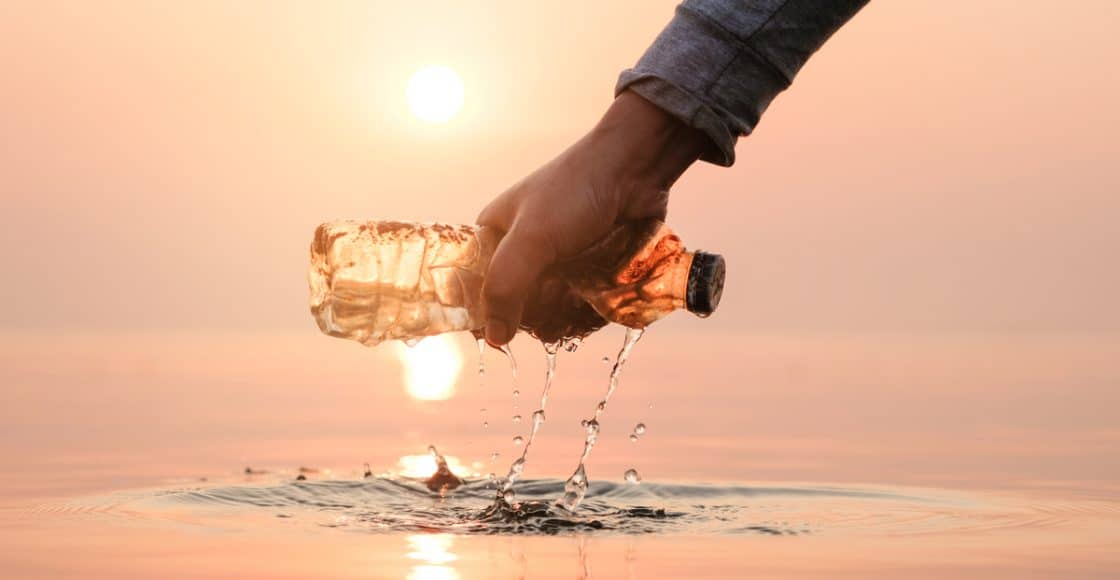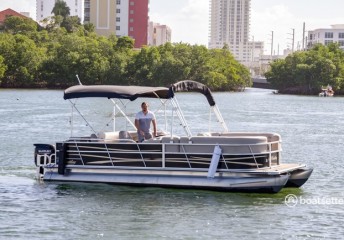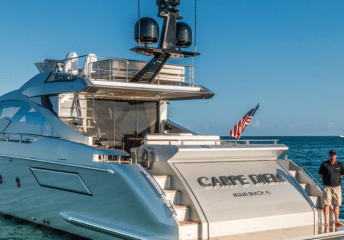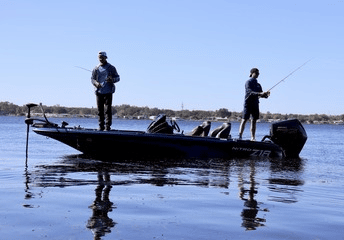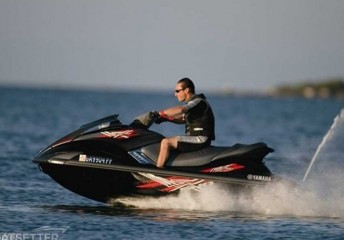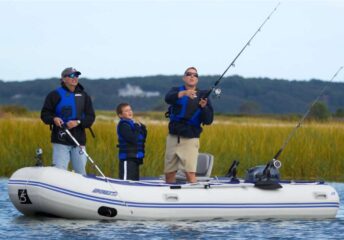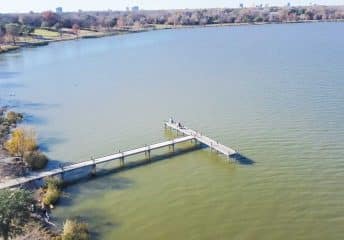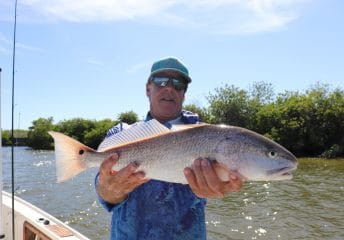7 Ways for Boaters to Celebrate World Ocean’s Day
Last Updated on November 3, 2023 by Boatsetter Team
Boaters across the globe have always had a special connection to the world’s oceans. Maybe they captain a sailboat, powerboat, or motor yacht. Perhaps the boat is docked in US waters, or maybe the vessel’s home port is in Europe or Asia. No matter the vessel or where it travels, boaters have always viewed the oceans as ripe for exploration.
For perspective, the vast oceans cover 72% of the earth’s surface. The oceans generate over half of the oxygen humans breathe and absorb huge amounts of carbon from the atmosphere.
For tips on how to be a clean boater and protect our waters during this year’s World Ocean Day, check out Green Boating: 6 Sustainable Best Practices for Boaters.
Overfishing, Pollution, and Plastics Problems
In the 21st century, however, the world’s oceans are in trouble. First, overfishing has systematically depleted the numbers of historically abundant fish species. Manufacturing facilities around the globe continue to dump chemicals and untreated waste into the nearby waters.
Plastic pollution is a major problem that has no borders. According to National Geographic, five huge clumps of plastic have been found in oceans. Every year, 8 million more metric tons of plastic products are deposited into the oceans, says the University of California Santa Barbara’s National Center for Ecological Analysis and Synthesis.
The Ocean Conservancy reports that plastic debris has been found in 60% of all seabirds and 100% of sea turtles under investigation. These marine creatures mistake plastic for food. When they ingest these harmful substances, it reduces their feeding efficiency and fitness level. Over time, lack of quality nutrition often contributes to their deaths.
Learn more about Boatsetter’s #MindYourWake sustainability initiatives.
World Oceans Day Focuses on Oceans’ Health
In 2008, the United Nations (or UN) General Assembly brought attention to the state of the world’s oceans. The global body resolved that June 8th would be designated as “World Oceans Day.” The event was an outgrowth of a smaller event in 1992.
The first World Oceans Day was observed on June 8, 2009. The event was designed to carry a dual focus: to bring attention to the oceans’ contributions to society and express concern about their global threats.
During the inaugural event, then-UN Secretary-General Ban Ki-Moon summarized the challenges ahead. “It is also an opportunity to recognize the considerable challenges we face in maintaining their capacity to regulate the global climate, supply essential ecosystem services, and provide sustainable livelihoods and safe recreation.”
After being held annually since 2009, a virtual World Oceans Day took place in 2020 during the COVID-19 pandemic. In 2022, the June 8 event will carry the theme “Revitalization: Collective Action for the Ocean.” This hybrid event will occur at the UN’s New York City Headquarters. The public can view virtual World Oceans Day happenings online.
How Boaters Can Get Involved
Boaters who want to help protect the world’s oceans can easily join the global effort. Celebrating World Oceans Day is an excellent place to start. However, sailors, powerboaters, kayakers, and other boaters who value the oceans can contribute to the solution throughout the year.
1. World Oceans Day Celebrations
Boaters can celebrate World Oceans Day close to their home ports. For perspective, countless creeks, rivers, sounds, and bays eventually feed into the oceans. Therefore, cleaning up these waterways helps to improve the overall health of the world’s oceans.
Toward that end, sailing, boating, and yacht clubs can organize a World Oceans Day clean-up event. During a friendly competition, groups can vie for the honor of picking up the most trash that day. The winning club might receive a gift card or other prize donated by a boating-related business.
2. Year-Round Conservation Efforts
A Green Guide to Boating can help boaters promote a cleaner marine environment. Besides optimizing engine efficiency, they can switch to safer boat cleaning agents. Boaters can be part of the solution by not throwing debris overboard and choosing anchoring spots that don’t damage marine life.
3. Maximize Engine Efficiency
Boaters can take multiple steps to maximize their boat engine’s fuel efficiency. In turn, this decreases the release of fuel by-products into the water and exhaust emissions into the air.
Keeping up with engine maintenance is an important step. A freshly changed fuel filter removes unnecessary particles from the fuel. Fuel additives keep engine parts clean and break down damaging substances.
Ensure that the boat carries the proper propeller for its type and size. Bent or otherwise damaged blades cannot deliver maximum thrust.
Therefore, the compromised blades reduce the engine’s fuel economy.
Finally, keep the onboard weight to a minimum. Keep the holding tank emptied, and bring only what’s needed for the trip. When cruising along, keep the hull level to optimize thrust. Increasing weight near the bow helps even the trim and contributes to better fuel efficiency.
4. Follow Careful Fueling Practices
Dock fueling pumps deliver fuel faster than a gas station pump. Therefore, fuel can easily drip or backsplash from the tank. If the tank is overfilled, fuel can unexpectedly come out of the vent.
Distracted boaters often fail to notice that the tank is filled, and additional fuel can pour into the water. By always practicing careful fueling, boaters can help to prevent discharges that can harm sea life.
5. Use Non-toxic Soaps and Cleaners
Boaters should always use non-toxic or phosphate-free soaps to wash the boat. Phosphate-containing soaps can cause algal blooms that deplete the water’s oxygen and lead to wildlife deaths.
In addition, boaters should avoid toxic cleaners that contain ammonia, chlorine, potassium hydroxide, or other chemicals or solvents. These substances can harm wildlife in several ways. Instead, boaters should use non-toxic cleaners or a vinegar/water solution and some old-fashioned elbow grease.
6. Don’t Throw Debris Overboard
Boaters should avoid throwing any trash into the water. Besides plastic bags, trash includes plastic and glass bottles, cigarette butts, and even food waste. Most trash will float, and currents can carry it quite a distance from the origination point. In the meantime, fish, seabirds, turtles, and other marine creatures can consume the harmful debris.
Minimize the debris problem by buying products in bulk. Where possible, remove packaging before bringing items onto the boat. Use recyclable (and recycled) containers when possible. Dispose of all waste and recyclables ashore. If marinas do not offer recycling services, strongly suggest that they do so.
7. Follow Safe Anchoring Practices
Before anchoring in a new location, boaters should check their charts for information on the bottom conditions. Avoid highly sensitive areas that the heavy anchor and ground tackle could damage. Look for indications of seagrass beds, shellfish beds, or coral reefs.
In an area with mooring buoys, contact the local port authority for information on available buoys. Local fishermen can often provide information as well. Before connecting to a mooring buoy, boaters should ensure that the metal and rope gear are in good condition and can support the boat’s weight.
Getting Out on the Water
Individual boaters can certainly make a difference in the oceans’ health. And a group of boaters, or even a club, can make an even bigger impact.
Boaters who currently don’t have their own vessel can book a convenient boat rental for a day. When multiple boaters work together, their effects create a positive ripple effect that extends across the globe. Learn more about how Boatsetter is working hard to protect our local waterways.

Boatsetter empowers people to explore with confidence by showing them a world of possibility on the water. Rent a boat, list your boat, or become a Boatsetter captain today.
